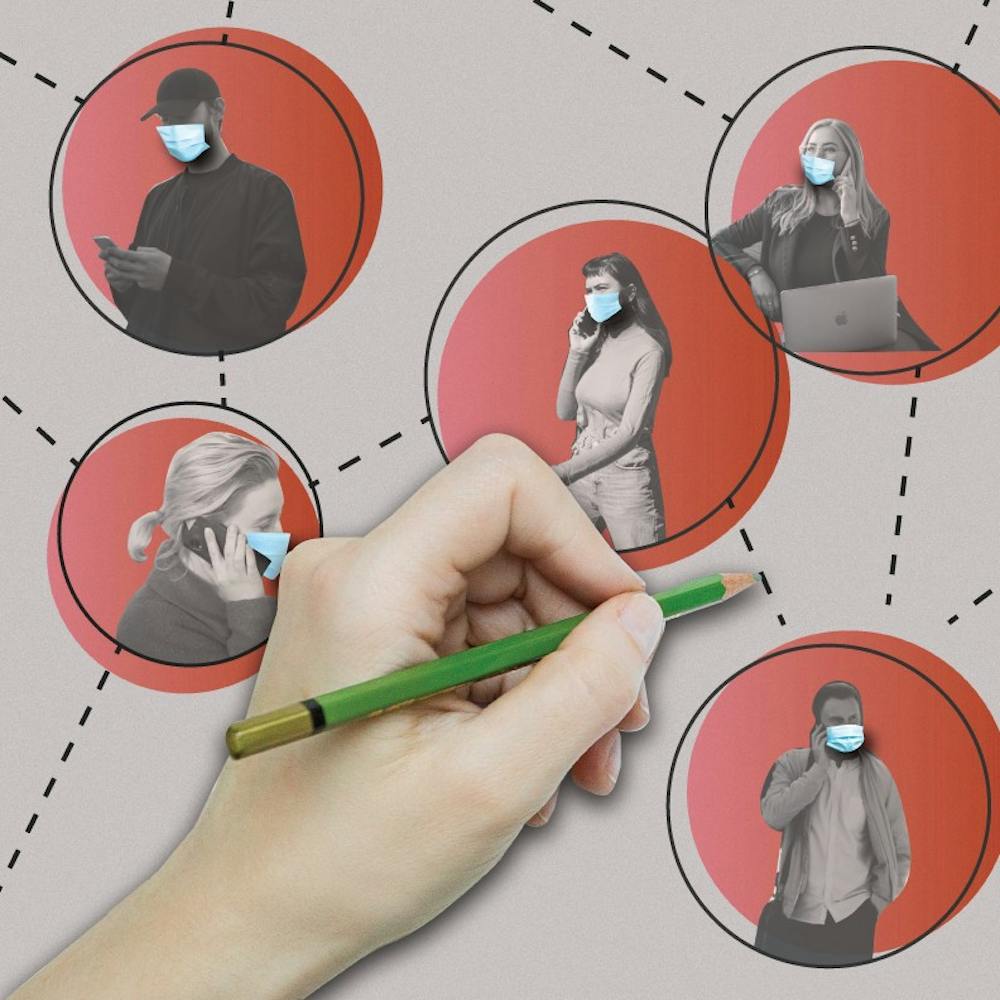Since May, a team of less than 100 Miami University public health students, faculty and staff have been working as contact tracers in an effort to help inform, educate and support those who tested positive for COVID-19 across Butler County.
The main goal of the program is not only to help those testing positive for COVID-19, but also to give students in the public health field hands-on work and training in the midst of the pandemic.
Last summer, when cases started to pop up rapidly, the Butler County General Health District proposed the program to the university in an effort to inform people on how long they should be quarantining as well as to advise those deemed close contacts.
To help pay student contact tracers, more than $275,000 in government money was granted to Miami by Butler County Health Commissioner Jennifer Bailer.
Bailer described the program as a “win on several fronts” in a press release by the university.
“Having additional people on board to make the many, many, many phone calls that are required in order to do COVID contact tracing allows the health district to quickly isolate and quarantine those who need to stay home,” Bailer said in the press release. “[The program is] a great real-world training opportunity for students.”
Kendall Leser, Miami’s public health program director, represents one-half of the contact tracing program’s leadership. After working to help find vulnerable populations affected by the outbreak, Leser and her team began the contact tracing program in May.
“I think we’re most proud of the fact that we were able to increase efficiency and workforce capacity to be able to handle the workload in the county,” Leser said.
Cameron Hay-Rollins, coordinator of Miami’s global health research innovation center, makes up the other half of the program’s leadership and spoke on the success the program has brought to Butler County.
“I think we have been very successful in the sense of limiting the spread of the disease by informing those to quarantine and isolate people,” Hay-Rollins said. “We’ve contacted a little above 40,000 people over phone calls between the beginning of August and December 31.”
After receiving their training from the Butler County Health Department, tracers in the program start their work week by receiving a list of the contact information of people in Butler County that have tested positive for COVID-19. They are then tasked with asking questions over the phone regarding each person’s symptoms, close contacts and the date they first became symptomatic. To finish the call, tracers provide information regarding how long the affected person should be in isolation, as well as storing the contact information on any close contact that should be notified of being exposed to COVID-19 for further use.
Students agreed the combination of real world experience and being able to help those who are COVID positive made the job experience a positive one.
Enjoy what you're reading?
Signup for our newsletter
“I thought it was really cool to see the backside of the health department,” said contact tracer and graduate student Megan Kelley. “How it handles global pandemics, all that goes into it.”
Junior social justice studies and public health major Jazz Bennett was another student who worked for the program.
“It was very interesting for sure, I felt like I got a lot out of it,” Bennett said.
While most people they called were compliant and agreed to talk, some didn’t or even denied they had COVID-19 in the first place.
“A few people said they just had a cold or just allergies,” Bennett said. “And really the only thing I could say to that was, ‘Well sir, we do have information that says you tested positive for COVID.”
Bennett estimated non-accommodating callers making up around a quarter of the whole, and while sometimes it made the job stressful, other times, calling people was a rewarding experience.
“When I would call someone who was 65 years or older, I could tell they really needed someone to talk to them,” Bennett said. “They really seemed to appreciate someone checking in with them. They knew we cared for them.”




